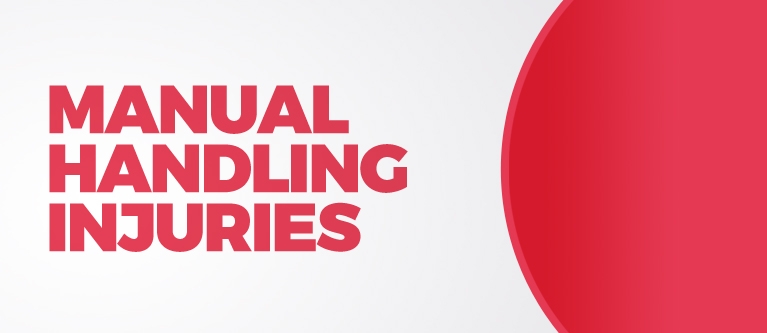Suffered a manual handling injury at work? Do you know your rights?
Every year, over one-third of serious accidents at work are caused by heavy lifting or manual handling – and they’re often due to the negligence of the employer.
By law, employers have a duty of care to ensure your workplace is safe. Under the Manual Handling Operations Regulations 1992, they should take several steps to help reduce your chances of a manual handling accident. This includes carrying out a thorough risk assessment, providing appropriate training for the job and supplying the correct equipment.
If they failed to do this, and you’ve experienced a workplace injury as a result, you could be eligible to claim compensation – and our specialist personal injury solicitors are here to help.
Common manual handling injuries
Manual handling injuries can occur in any job that involves a lot of physical handling, carrying or lifting. This can happen in pretty much any industry, but accidents tend to be more likely in sectors such as construction, retail and distribution, and medical and care work.
The injury itself can range in severity, from mild and slightly debilitating to serious and extremely disabling – sometimes even life-changing.
Some of the most common manual handling injuries include:
- Cuts, bruises and fractures
- Damage to the musculoskeletal system, including the muscles, tendons, ligaments, bones, joints, blood vessels and nerves. These are categorised into three groups:
- neck and upper limb disorders
- lower limb disorders
- back pain and back injuries
- Hernias
- Injuries to the hands, feet, ankles and wrists
Please note, however, that this is not an exhaustive list.
Whatever the nature or severity of your manual handling injury, our workplace accident solicitors have the knowledge and experience required, to advise on your eligibility for compensation, assist with your accident at work claim and ensure you achieve the best outcome.
Who is responsible for your manual handling accident?
The simple answer is – your employer.
Before you do any sort of manual handling task at work, your employer has a legal duty to ensure you have the right training and equipment to do that task safely. This should include conducting a risk assessment and considering:
- how the object/s will be moved (i.e. pushed, lifted or carried)
- whether the task is within your capabilities, taking into account any relevant training as well as personal traits, such as your strength and fitness levels
- the size, weight and shape of the object/s being handled (i.e. does the task require a second person or machine to help?)
- the route that will be taken while handling the object
To reduce the chances of a manual handling accident, they should then remove any risks identified either completely or – at the very least – reduce these to a minimum. If they didn’t do this, and you’ve been hurt after carrying or lifting at work, this is a form of ‘negligence’ – and you may be able to make a manual handling injury claim.
Are you eligible to make a manual handling injury claim?
A builder moving heavy bricks. A doctor transferring a patient onto a bed. A vet who is suddenly pulled by a horse and injures their back. A shop assistant moving boxes onto a counter. A teacher carrying books. A taxi driver carrying cases.
The list of potential ‘manual handling injuries’ is endless. If you’re unsure of your eligibility to claim, ask yourself the following questions. Did your employer:
- Review and eliminate any manual handling task that wasn’t 100% necessary?
- Carry out a risk assessment of all manual handling that couldn’t be eliminated?
- Try to eliminate or reduce the risk of manual handling injuries?
If the answer to any of these is no, and you’ve sustained a manual handling injury – no matter how mild or severe – it’s worth contacting our workplace accident solicitors.
Typically, you have three years from the date of the accident to make your claim.
Claiming for an accident at work may seem daunting, especially whilst you’re trying to focus on your recovery. But injuries like these can have a huge impact on your life – physically, psychologically and financially. And if you’ve been hurt due to the negligence or fault of your employer, you shouldn’t hesitate to seek the compensation you so rightly deserve.
It may not take away what’s happened, but it can help to cover any costs you’re facing – for ongoing treatment, physiotherapy, home adaptations etc. – and give you some much-needed financial support.
Manual handling claims at St Helens Law
Our experienced personal injury solicitors are always on hand to help.
Not only can we advise on your eligibility to make a manual handling claim, if you’d like to go ahead, we can take care of the full claim on your behalf. We ensure the process is as simple as possible, and most accident at work claims can be completed on a ‘no win no fee’ basis.
To take the first step, simply give us a call on 01744 742360. Or send an email to info@sthelenslaw.co.uk and we’ll respond to your enquiry as soon as possible.


